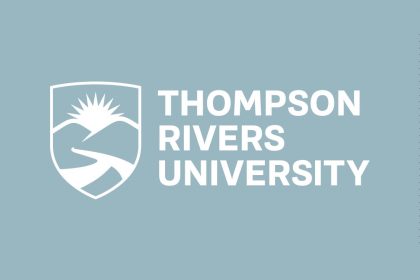The following is a combination of two chapters excerpted from Pulling Together: A Guide for Front-Line Staff, Student Services, and Advisors by Ian Cull, Robert L. A. Hancock, Stephanie McKeown, Michelle Pidgeon, and Adrienne Vedan.
Reconciliation is not an Aboriginal problem – it involves all of us.
– Chief Justice Murray Sinclair (CBC, 2015)
Reconciliation
Reconciliation is about addressing past wrongs done to Indigenous Peoples, making amends, and improving relationships between Indigenous and non-Indigenous people to create a better future for all.
The work of Indigenization is a growing focus in this era of reconciliation, which has been driven forward by the Truth and Reconciliation Commission of Canada (TRC), a multi-year investigation of the residential school system. The TRC gathered information in a variety of ways about the historical and contemporary injustices toward Indigenous Peoples from across the nation. The release of the Honouring the Truth, Reconciling the Future: Summary of Final Report of the Truth and Reconciliation Commission in June of 2015 marked an important moment in the history of Canada. In the context of reconciliation, Indigenization is one way in which we can contribute to working toward a stronger shared future as Indigenous and non-Indigenous people.
The report, with its 94 Calls to Action, emphasizes the need for education to play a key role in service of justice and resurgence of Indigenous Peoples, and Indigenous communities are looking at post-secondary institutions to be leaders in responding to the TRC Calls to Action and in working to support Indigenous education in meaningful, concrete, and sustainable ways. Essential to this work is placing Indigenous perspectives at the centre of the work being done, or, as Marie Battiste has said, “Nothing about us without us” (quoted in Cote-Meek, 2017). It means we are moving towards processes of truth and reconciliation and transforming the educational system into spaces that are inclusive, respectful, and honour Indigenous people.
Given the colonial context of Canadian education, there is work to be done to decolonize our policies and practices to de-centre Western approaches and being to re-centre Indigenous ways of knowing, being, learning, and teaching. Mindful of the need for truth and reconciliation, this work is guided by a relatively straightforward question:
Are we making the institution a better place for those who come after us?
While the recent context of reconciliation has brought new levels of attention to this work, we acknowledge the long history of Indigenous faculty and staff and allies in supporting Indigenous students and advocating for change within institutions, and respectfully working to empower Indigenous communities.
Moving Forward, Reconciling Intent, Purpose, and Practice
Moving forward means ongoing self-reflection and assessment of one’s own individual roles and responsibilities to supporting Indigenous students, and the following sections will guide you through this process. Moving forward also must come with clear financial and human resources support to provide ongoing professional development opportunities and targeted hiring practices.
When surveyed, BC Aboriginal post-secondary coordinators indicated that hiring Indigenous people in student services and other front-line services as the most supportive way to help with Indigenization in an institution.
Front-line services also require a way to transform institutional culture so the values of Indigenization continue. Too often, champions who initiate Indigenized practices and relationships are recognized as innovators to the department and institution; very rarely do these practices and relationships become common procedure or guiding policy. When the champion retires or changes jobs, the practice and relationship ceases. Staff engaging in this decolonizing, Indigenizing, and reconciliation practice need to be supported in their intentions, and they need to have space and time to discuss the challenges and celebrate areas of growth and success.
Becoming an ally
Acknowledging the overt and systemic forms of racism and discrimination within public post-secondary institutions is a core part of decolonization. It’s also important to understand that by shifting individual mindsets and practices, we can make structural changes in institutional cultures, policies, and programs, thus Indigenizing the institution and ourselves. Becoming an ally is an important practice that addresses how to do this.
An ally is someone from a privileged group who is aware of how oppression works and struggles alongside members of an oppressed group to take action to end oppression. Anne Bishop explains:
Allies are people who recognize the unearned privilege they receive from society’s patterns of injustice and take responsibility for changing these patterns. Allies include men who work to end sexism, white people who work to end racism, heterosexual people who work to end heterosexism, able-bodied people who work to end ableism, and so on. Part of becoming an ally is also recognizing one’s own experience of oppression. For example, a white woman can learn from her experience of sexism and apply it in becoming an ally to people of colour, or a person who grew up in poverty can learn from that experience how to respect others’ feelings of helplessness because of a disability.
If you are a non-Indigenous person engaged in the work of Indigenization, you can better understand your role in this movement as being an ally to Indigenous people. An ally:
- does not put their own needs, interests, and goals ahead of the Indigenous people they are working with.
- has self-awareness of their own identity, privilege, and role in challenging oppression.
- is engaged in continual learning and reflection about Indigenous cultures and history.
